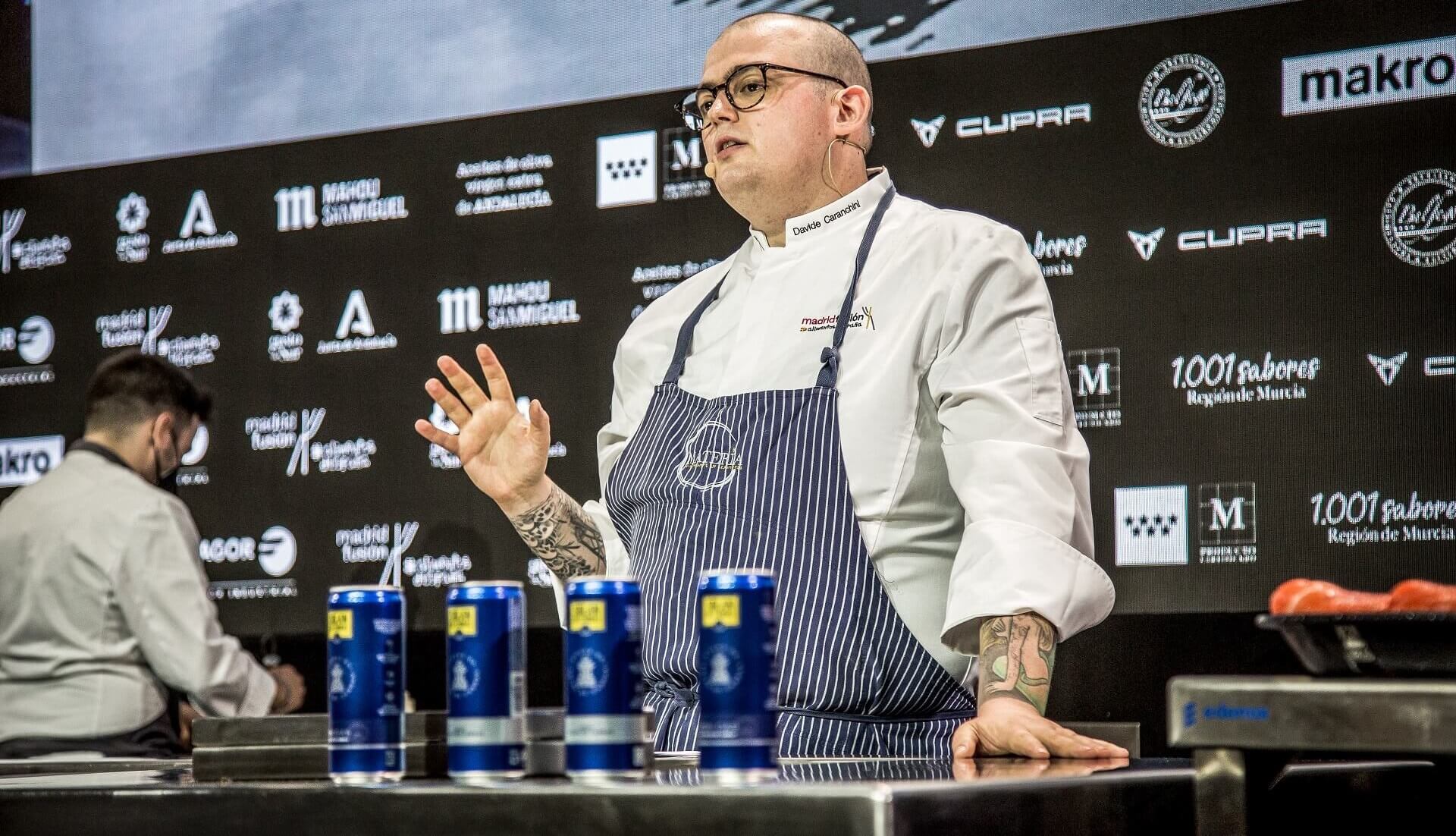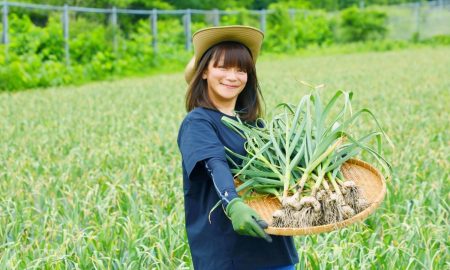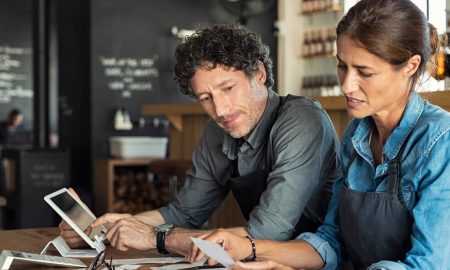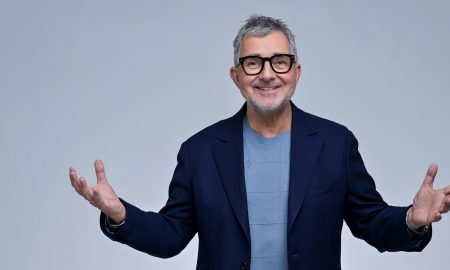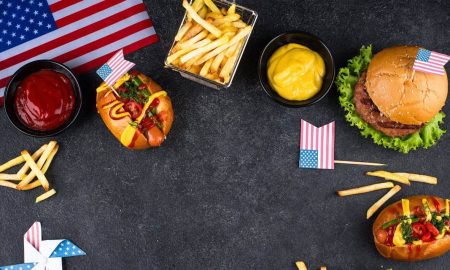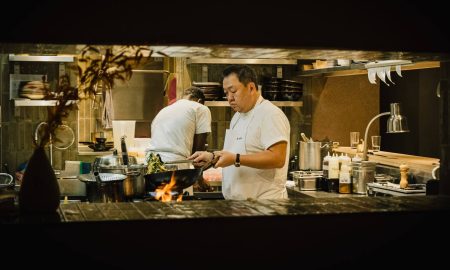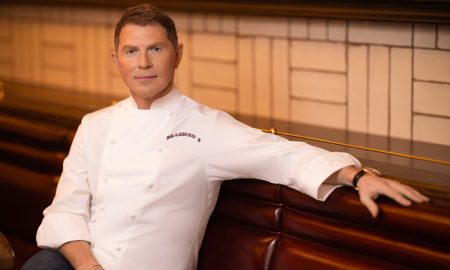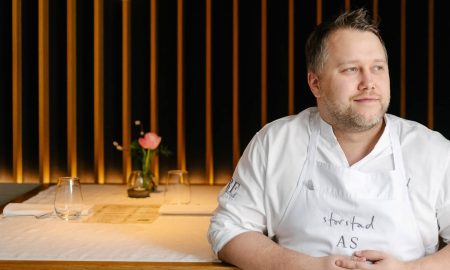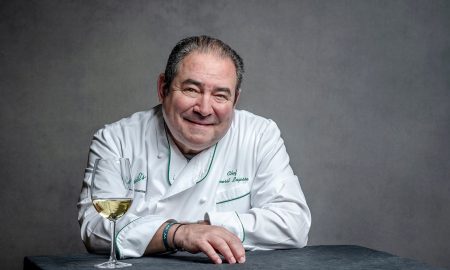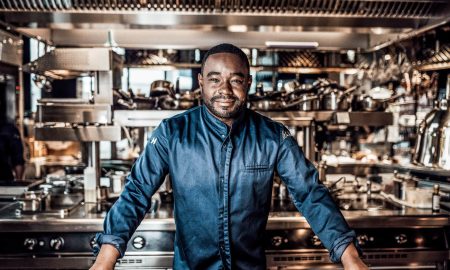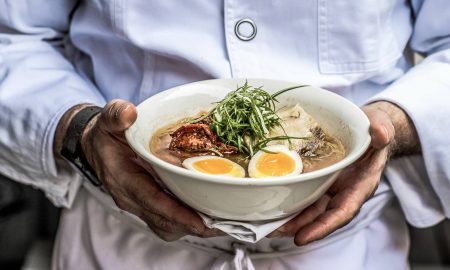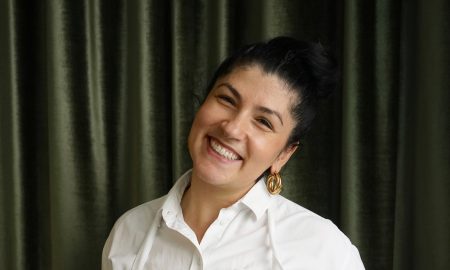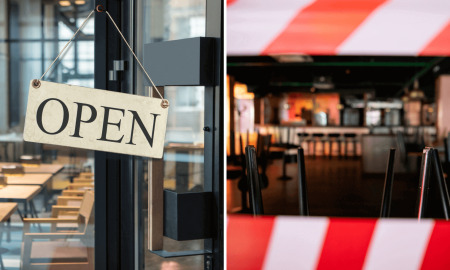He describes his food as southern ingredients with a Nordic approach and has adopted a modern take on sustainability in his restaurant in northern Italy. In his singular approach to sustainable food from his region, Davide Caranchini has taken inspiration from years working in renowned restaurants including Noma in Copenhagen, the home of new Nordic cuisine, and Le Gavroche in London.
Sieh dir diesen Beitrag auf Instagram an
After this international learning experience, he opened his own restaurant Materia in the foothills around Lake Como in September 2016. Surrounded by the mountains and water, in the remote north of Italy near the border with Switzerland he is determined to champion the food of his region, which is less well known internationally.
“I come from Lake Como, which is known all over the world for its posh food – and George Clooney,” he says. Caranchini’s mission is to show the world a different more authentic side of his region.
Materia was awarded a Michelin star in the 2019 Michelin Guide to Italy. And in 2020 Caranchini was named among the best chefs under 30 by Gambero Rosso restaurant guide.
Sustainability is at the forefront of his mind and at the center of the restaurant. But, as he points out, sustainability is about much more than food waste and energy consumption today. “It is getting boring now and we have a very different scientific approach to sustainability,” he says. “I like to talk about the human part of sustainability because that is the most important part. The people who work with the produce we use in the kitchen.”
Modernity
Asked to describe his own food, he likes to call it modern, but beyond that he is reluctant to use any labels. “I want to be free to do what I want to do without any labels,” he says.
“We often think Avant Garde is all about technique and equipment, but I always say modernity resides in your mind first and foremost,” he says. “You can spend as much money [on equipment] as you want, but if you don’t think modern you will never be modern. You can do Avant Garde without special equipment; it is about how you think.”
Earlier this year Caranchini gave a presentation to the audience at Madrid Fusión, the world’s leading gastronomy congress, held in the Spanish capital now in its 19th edition. The theme of circular gastronomy is one close to the philosophy of Materia.
During his presentation in Madrid, he outlined his thoughts to the audience. “Circular gastronomy is about knowledge, technique, ethics and sustainability. In modern circular gastronomy you need three more elements to complete the puzzle: the sharing of ideas, sensibility and thought.”
He demonstrated his take on modernity and sustainability by cooking a version of antipasto – a selection of small dishes to enjoy at the start of the meal. “It is something that makes you happy when you sit at the table,” says Caranchini. For this version of antipasto misto de lago he worked with the lake trout, a product that is hyper local to. Using every part of the fish from head to tail, he prepared dehydrated liver to create mille-feuilles with pate from the liver and using the meat of the fish to serve as a tartare with smoked eel butter. In another demonstration of his local approach, he dipped the cheeks of the fish in garum sauce, made from fish in the lake, and added crème fraiche made from milk of the cows in nearby mountains.
Life after the pandemic
Like so many other restaurants in Italy and the rest of the world Materia had to close when the pandemic struck last year. And Caranchini used the enforced downtime as an opportunity to learn and to consider everything again.
“Of course it has changed the way I see life,” he says. “Our work is very tough; you spend 17 or 18 hours a day working so you never think about your personal life and during the pandemic it has been interesting to discover a world outside the restaurant.”
Sieh dir diesen Beitrag auf Instagram an
Spending time at home and observing the world around him equally made him question his own contribution to the local community. “I had time to look at the territory around me and I asked myself, what can I do?,” he says. “For so many years we have mistreated the lakes and the mountains; it would be nice if we could give something back instead of continuously taking.”
One way of giving back is to work with small producers in his community – it requires consideration. “The suppliers work with very small batches, and we have to give value to their work and pay them right for the product otherwise they can’t work,” he says. “Economic sustainability is important, people are important.”
He also emerged from the pandemic with a new menu for Materia – Revolution Revival represents a new start in his cuisine, he says. “We have been forced to reinvent everything from scratch. It’s Italian cuisine 2.0”
Though nobody would have wished for the pandemic, the young chef found a way to use it as an opportunity to reinvent himself and his restaurant. “Cooking is like an addiction so you can’t go without and you always do more, but when you stop you might realize that maybe you were not doing everything 100% right,” he says. “You always have to find the positive in everything that happens.”


